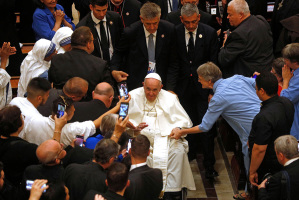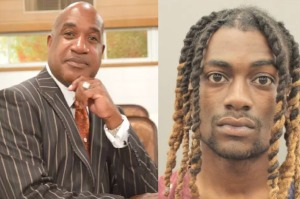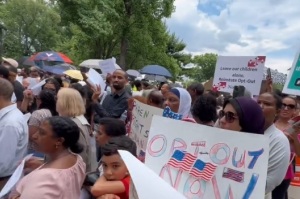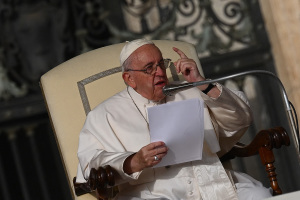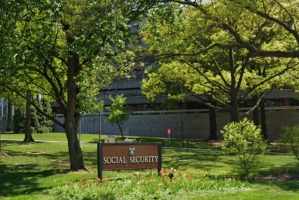ELCA Opens 2009 Church Assembly with Call for Respectful Discussions
More than 2,300 Lutherans opened up the biennial gathering of their denomination's chief legislative authority on Monday, well aware that great attention has been placed on proposals to change church policy on gay and lesbian clergy.
But the Rev. Mark S. Hanson, presiding bishop of the Evangelical Lutheran Church in America, said Monday that he approached the assembly "in a spirit of confident hope" that the church could learn to live with its differences.
"Those talking about a dissension leading to division have not been listening to the church over the past four years," he said as the 2009 ELCA Churchwide Assembly opened its first day in Minneapolis. "The intensity of the rhetoric has been diminished and replaced by a very thoughtful engagement."
Hanson encouraged all assembly participants, particularly the 1,045 voting members, to engage this week in respectful discussions on sexuality that will show the world that while Lutherans may not be "of one mind," they can still be "united in faith and in our shared mission together."
"We have an opportunity this week to bear witness in a culture that often wants to polarize and see all questions in their polar opposites," he said during a news conference, reiterating past statements made in the weeks and months leading up to this week's assembly.
Ahead of this week's gathering, several groups of Lutheran scholars and church leaders have released open letters urging votes for and against changes to the denomination's positions on homosexuality.
Among the proposals being considered this week is a statement on human sexuality and proposals that conservatives say would allow non-celibate homosexuals to be ordained.
Earlier this year, the Task Force for ELCA Studies on Sexuality released a long-awaited report acknowledging that there is neither a consensus nor an emerging one in the denomination on homosexuality. At the same time, the task force recommended that individual congregations be allowed to choose whether to allow gays and lesbians in committed relationships to be ordained.
According to an in-depth national study of mainline Protestant clergy by Public Religions Research, a majority (54 percent) of ELCA clergy says that gay and lesbian people should be eligible for ordination with no special requirements and a plurality (46 percent) supports performing same-sex marriages in states where they are legal.
About one-third (32 percent), meanwhile, says that gay and lesbian people should be eligible for ordination only if they are celibate, and only 14 percent say gay and lesbian people should not be eligible at all.
When asked about his own position regarding the sexuality issues facing ELCA, Hanson said he believes his call is to "shepherd this church" through the discussion, and that, as president of the Lutheran World Federation, he represents Lutherans worldwide, including those who are strongly opposed to the changes being discussed within ELCA.
The presiding bishop further added that he did not want his advocacy of a particular position to become prominent, believing that he can best shepherd the church body - the largest Lutheran denomination in the United States - by making the current discussions "as participatory as possible."
"Come next Saturday, I will lead this church based on what it has decided, whatever that is," Hanson added.
Though voting has already begun on proposals regarding ELCA's longstanding policy on homosexual clergy, a final vote on the proposal to allow individual congregations to hire non-celibate gays and lesbians as clergy is not expected until Friday.
The 2009 Church Assembly concludes Sunday.
















